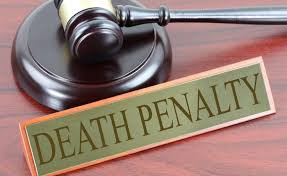
HUMAN rights activists have raised concerns over a provision in the recently enacted law that abolishes the death penalty, which allows for reinstatement of capital punishment in special cases.
Zimbabwe this week abolished the death penalty through the Death Penalty Abolition Act.
At least 59 people were known to be under sentence of death as at the of end of 2023.
A provision in the Defence Act introduced by the Death Penalty Abolition Act, allows for the reinstatement of the death penalty when any state of public emergency is declared in terms of section 113 of the Constitution.
Amnesty International Zimbabwe executive director Lucia Masuka urged lawmakers to consider removing the clause which allows the reinstatement of the death penalty in certain cases.
“Amnesty International applauds Zimbabwe’s decision to abolish the death penalty for all crimes, but regrets the possibility of its reinstatement during a state of emergency under the Defence Act,” Masuka said.
“This is not just great progress for Zimbabwe, it is also a beacon of hope for the abolitionist movement in the region, and a major milestone in the global collective pursuit for an end to this ultimate cruel, inhumane and degrading punishment.
“By enacting the Death Penalty Abolition Bill, Zimbabwe has taken a major step towards aligning its laws with international human rights standards. Its actions also send a clear message about the fundamental importance of protecting the right to life and human dignity.”
- Amend laws to address statelessness: Amnesty
- Resolving Statelessness long overdue
- Concern over death penalty abolition clause
- Tracking the path to abolition of death penalty in Zim
Keep Reading
She called on authorities to swiftly move to a full abolition of the death penalty by removing the clause included in the amendments to the Bill allowing for the use of the death penalty for the duration of any state of public emergency.
Zimbabwe Human Rights Association director Dzikamai Bere described the abolition of the death penalty as the most progressive human rights action in Zimbabwe since the inception of the new Constitution.
“The abolition of the death penalty in Zimbabwe is the most progressive human rights action that our government has taken since the inauguration of the new Constitution in 2013,” Bere said.
“In fact, it is a struggle that has spanned over decades that activists across the globe have been advocating for.
“We salute Transparency International and Veritas, who also worked hard to draft the model law and provide technical support.
“We commend President Emmerson Mnangagwa for his consistency in advocating for the abolition of the death penalty dating back from his time as Justice minister.”
Bere, however, decried the possibility that the death penalty could be reinstated.
“While we celebrate the abolition of the death penalty, it is regrettable that there is a provision that allows for the death penalty to be reinstated in cases of public emergency,” he said.
“We continue to push and call for a total abolition of the death penalty. Arguing that there should be no excuse whatsoever for taking life.
“The reason being very simple, the right to life is absolute. While we appreciate that the President is facing huge backlash from pro-death penalty advocates in his government, and as a result, he may be trying to balance.”
He said while the Act was a very progressive move, Mnangagwa should push for full abolition of the death penalty.
“There should be no excuses for taking human life. The march has not ended until the death penalty is fully abolished,” he said.
Crisis in Zimbabwe Coalition chairman Peter Mutasa also weighed in saying the new law was a progressive development that aligned the law to the Constitution on protection of the right to life.
“The death penalty remains a controversial subject with many citizens still in support of it for heinous crimes.
“However, from a human rights perspective death penalty infringes on the unalienable right to life,” Mutasa said.
“We have also seen in many instances where people are unfairly convicted and later on be found to be innocent.
“Death penalty is irreversible and some people may be executed without due process. In authoritarian environments, this can also be used arbitrarily to get rid of political rivals.”
As of today, 24 African countries have fully abolished the death penalty.
Globally, 113 countries are fully abolitionist.










